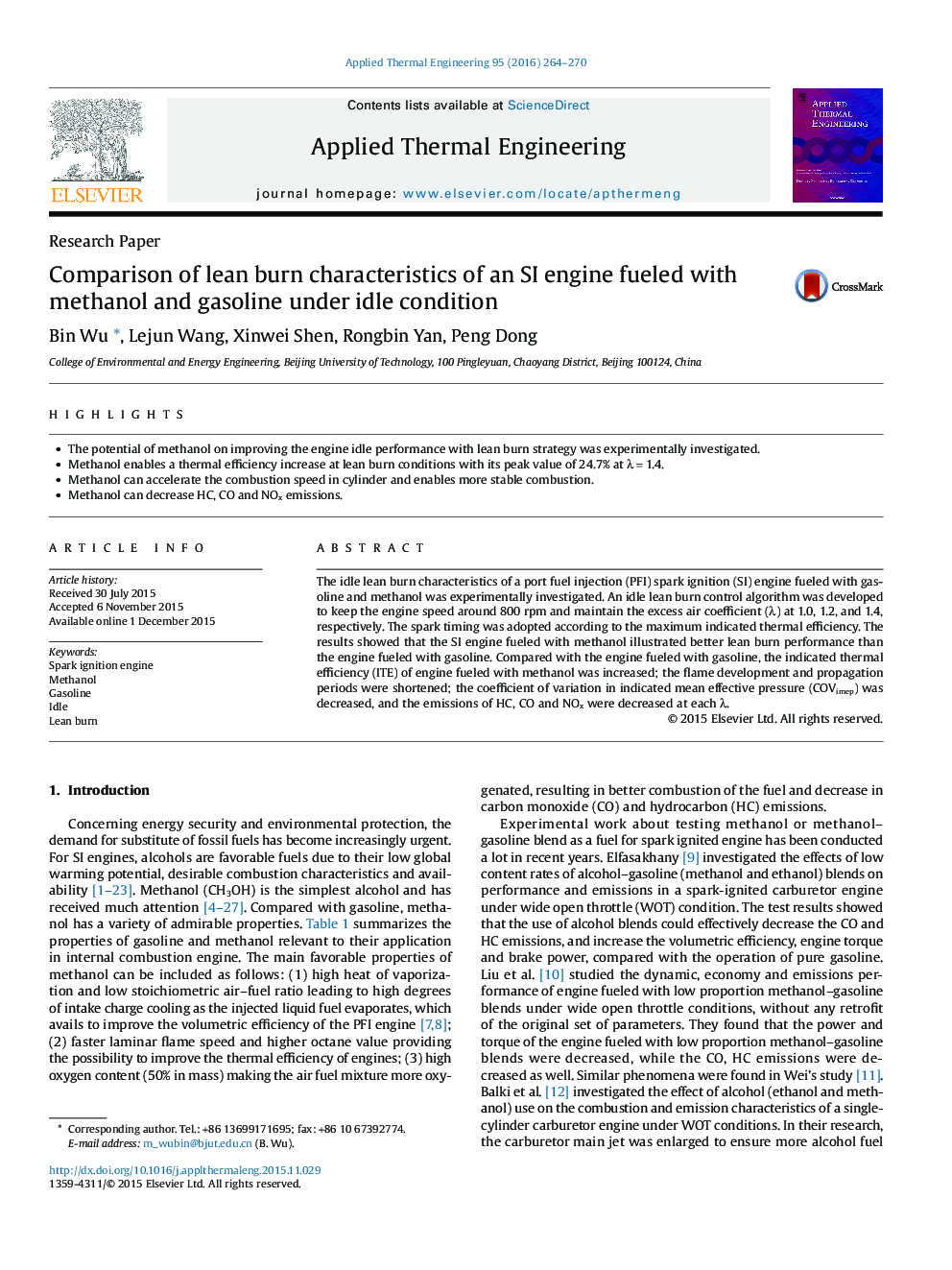| Article ID | Journal | Published Year | Pages | File Type |
|---|---|---|---|---|
| 645172 | Applied Thermal Engineering | 2016 | 7 Pages |
•The potential of methanol on improving the engine idle performance with lean burn strategy was experimentally investigated.•Methanol enables a thermal efficiency increase at lean burn conditions with its peak value of 24.7% at λ = 1.4.•Methanol can accelerate the combustion speed in cylinder and enables more stable combustion.•Methanol can decrease HC, CO and NOx emissions.
The idle lean burn characteristics of a port fuel injection (PFI) spark ignition (SI) engine fueled with gasoline and methanol was experimentally investigated. An idle lean burn control algorithm was developed to keep the engine speed around 800 rpm and maintain the excess air coefficient (λ) at 1.0, 1.2, and 1.4, respectively. The spark timing was adopted according to the maximum indicated thermal efficiency. The results showed that the SI engine fueled with methanol illustrated better lean burn performance than the engine fueled with gasoline. Compared with the engine fueled with gasoline, the indicated thermal efficiency (ITE) of engine fueled with methanol was increased; the flame development and propagation periods were shortened; the coefficient of variation in indicated mean effective pressure (COVimep) was decreased, and the emissions of HC, CO and NOx were decreased at each λ.
